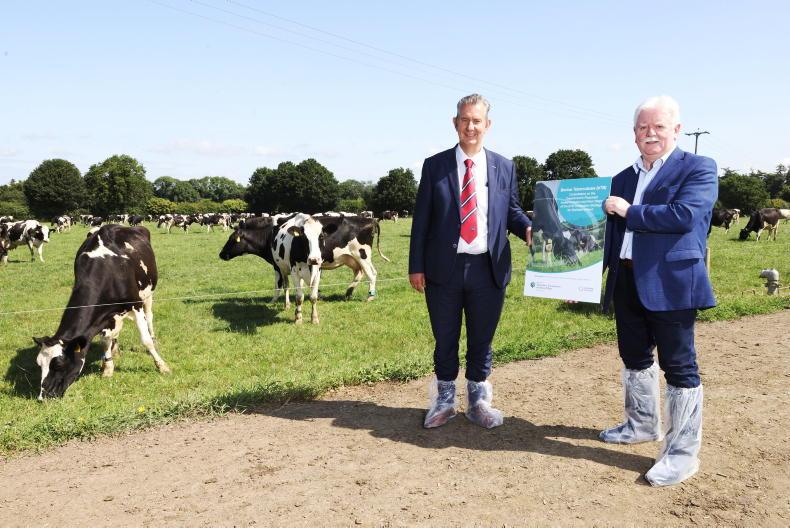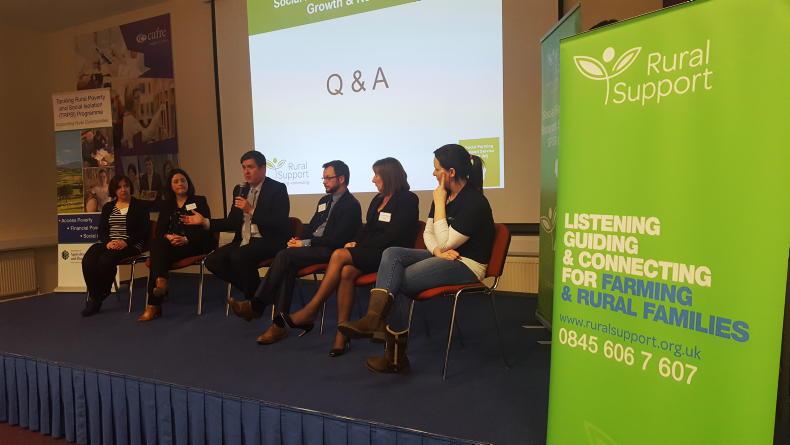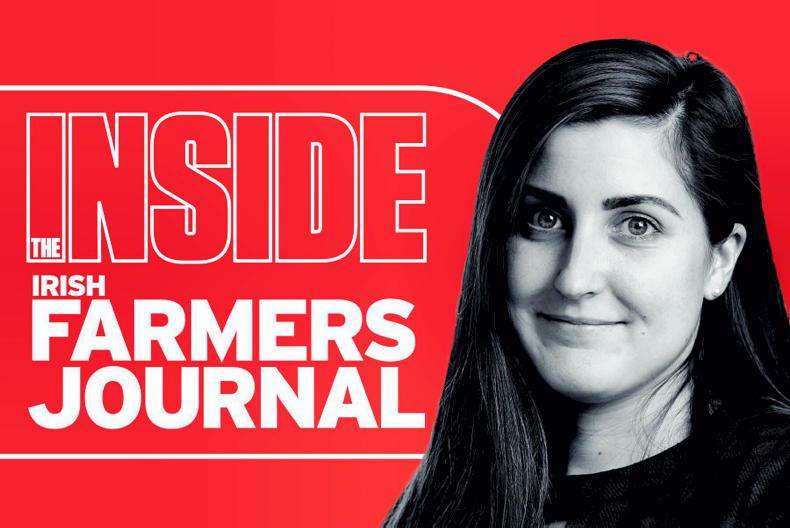The next steps towards the eradication of bovine TB in NI will require “massive sacrifices” by both farmers and wildlife groups, but are potentially a “game-changer” in the fight against the disease, Agriculture Minister Edwin Poots has claimed.
Launching the eight-week consultation on DAERA proposals at Greenmount last Friday, Minister Poots added that continuing with the current policy is not an option.
DAERA’s proposals include changes in how reactor animals are valued, and a non-selective cull of free-roaming badgers in TB hotspot areas.
The DAERA proposal states that “some form of intervention is necessary to break the cycle of infection transmission between badgers and cattle”.
There are also big savings if a farmer-led company undertakes the cull
Analysis by the Department shows that free-shooting is much cheaper to deliver than either capturing badgers in cages or a restraint trap as would be required if implementing a Test and Vaccinate or Remove (TVR) approach.
There are also big savings if a farmer-led company undertakes the cull as opposed to either DAERA officials, or a private company under contract to DAERA.
As a result, the Department proposes that this expense falls back on to farmers. The estimated cost over seven years across a 1,200km2 area is around £14m.
Reaction
Commenting, Ulster Farmers’ Union (UFU) president Victor Chestnutt described the proposed strategy from the Department as “long overdue” and a “step in the right direction”.
“The UFU will consider the document in detail and we will provide our view in due course,” he added.
The consultation was also welcomed by Brian Walker, chair of the Pedigree Cattle Trust, although he was critical of the amount of jargon in the document, and said that there was “too much stick and not enough carrot” in proposals around improved farm biosecurity.
He suggested that DAERA should consider an alternative approach to a cap of £5,000 in pedigree herds
On the issue of the skin test, Walker called for alternatives to be considered, while he also maintained that cuts to compensation would be “extremely difficult to accept” given that there is no end in sight for the disease. He suggested that DAERA should consider an alternative approach to a cap of £5,000 in pedigree herds, whereby this would only apply after a certain number of animals are removed.
The consultation closes to responses on 10 September 2021.
Enhanced TB measures to be introduced
Contained within the DAERA consultation document are a number of measures it intends to proceed with, starting from 2021 onwards.
Many of those were first recommended in the 2016 report from the industry led TB Strategic Partnership Group (TBSPG).
The first is to put in place various governance arrangements. The TBSPG recommended the establishment of a TB Eradication Partnership (TBEP) to give expert advice to DAERA.
That group has been in place since 2018, and below it the TBSPG wanted to establish Regional Eradication Partnerships and Disease Response Teams, which would include local vets and farmers.
The TBSPG report did recommend that farmers should only restock once a clear test is completed
DAERA is now to proceed with setting up the first of three Regional Eradication Partnerships, and will establish disease response teams as and when required. Other measures that the Department will develop alongside the TBEP and industry representatives, include a new risk-based approach to restocking following a TB breakdown. The TBSPG report did recommend that farmers should only restock once a clear test is completed.
In addition, DAERA is to look again at the potential to allow some cattle to move from TB herds into alternative control herds (where strict biosecurity rules apply).
It is also to consider new ways to counter fraud at a TB test, and will work with industry to develop informed purchasing. That would essentially mean that buyers will be able to see the disease history of the selling herd.
Segregation
DAERA also plans to introduce segregation notices which would be issued to breakdown herds and may restrict the ability to graze animals next to other herds.
Related to that are statutory improvement notices, issued to farmers who have ignored advice around biosecurity etc and pose a risk to neighbours.
There is also likely to be more pressure put on hauliers and farmers to wash down and disinfect trailers after each livestock move, and a drive to encourage selection of TB resistant genes.
Views
Two issues that the Department is seeking views relate to testing of non-bovines and the use of the interferon gamma (blood) test.
At present, DAERA can only test non-bovine animals (eg deer and alpacas) where there are already cattle on the farm. Officials want to introduce legislation that will allow non-bovines to be tested on any farm where there is a reasonable suspicion that TB exists.
The Department is also seeking feedback on criteria to be used to determine when the interferon gamma test is employed in addition to the standard skin test. The interferon test is more likely to pick up early stages of infection, but also more likely to produce false positives. Among the criteria suggested is that it is used in herds that have unresolved breakdowns.
lasting at least 18 months.
Read more
Only 108 badgers culled in TVR project
Rising TB levels across Ireland
The next steps towards the eradication of bovine TB in NI will require “massive sacrifices” by both farmers and wildlife groups, but are potentially a “game-changer” in the fight against the disease, Agriculture Minister Edwin Poots has claimed.
Launching the eight-week consultation on DAERA proposals at Greenmount last Friday, Minister Poots added that continuing with the current policy is not an option.
DAERA’s proposals include changes in how reactor animals are valued, and a non-selective cull of free-roaming badgers in TB hotspot areas.
The DAERA proposal states that “some form of intervention is necessary to break the cycle of infection transmission between badgers and cattle”.
There are also big savings if a farmer-led company undertakes the cull
Analysis by the Department shows that free-shooting is much cheaper to deliver than either capturing badgers in cages or a restraint trap as would be required if implementing a Test and Vaccinate or Remove (TVR) approach.
There are also big savings if a farmer-led company undertakes the cull as opposed to either DAERA officials, or a private company under contract to DAERA.
As a result, the Department proposes that this expense falls back on to farmers. The estimated cost over seven years across a 1,200km2 area is around £14m.
Reaction
Commenting, Ulster Farmers’ Union (UFU) president Victor Chestnutt described the proposed strategy from the Department as “long overdue” and a “step in the right direction”.
“The UFU will consider the document in detail and we will provide our view in due course,” he added.
The consultation was also welcomed by Brian Walker, chair of the Pedigree Cattle Trust, although he was critical of the amount of jargon in the document, and said that there was “too much stick and not enough carrot” in proposals around improved farm biosecurity.
He suggested that DAERA should consider an alternative approach to a cap of £5,000 in pedigree herds
On the issue of the skin test, Walker called for alternatives to be considered, while he also maintained that cuts to compensation would be “extremely difficult to accept” given that there is no end in sight for the disease. He suggested that DAERA should consider an alternative approach to a cap of £5,000 in pedigree herds, whereby this would only apply after a certain number of animals are removed.
The consultation closes to responses on 10 September 2021.
Enhanced TB measures to be introduced
Contained within the DAERA consultation document are a number of measures it intends to proceed with, starting from 2021 onwards.
Many of those were first recommended in the 2016 report from the industry led TB Strategic Partnership Group (TBSPG).
The first is to put in place various governance arrangements. The TBSPG recommended the establishment of a TB Eradication Partnership (TBEP) to give expert advice to DAERA.
That group has been in place since 2018, and below it the TBSPG wanted to establish Regional Eradication Partnerships and Disease Response Teams, which would include local vets and farmers.
The TBSPG report did recommend that farmers should only restock once a clear test is completed
DAERA is now to proceed with setting up the first of three Regional Eradication Partnerships, and will establish disease response teams as and when required. Other measures that the Department will develop alongside the TBEP and industry representatives, include a new risk-based approach to restocking following a TB breakdown. The TBSPG report did recommend that farmers should only restock once a clear test is completed.
In addition, DAERA is to look again at the potential to allow some cattle to move from TB herds into alternative control herds (where strict biosecurity rules apply).
It is also to consider new ways to counter fraud at a TB test, and will work with industry to develop informed purchasing. That would essentially mean that buyers will be able to see the disease history of the selling herd.
Segregation
DAERA also plans to introduce segregation notices which would be issued to breakdown herds and may restrict the ability to graze animals next to other herds.
Related to that are statutory improvement notices, issued to farmers who have ignored advice around biosecurity etc and pose a risk to neighbours.
There is also likely to be more pressure put on hauliers and farmers to wash down and disinfect trailers after each livestock move, and a drive to encourage selection of TB resistant genes.
Views
Two issues that the Department is seeking views relate to testing of non-bovines and the use of the interferon gamma (blood) test.
At present, DAERA can only test non-bovine animals (eg deer and alpacas) where there are already cattle on the farm. Officials want to introduce legislation that will allow non-bovines to be tested on any farm where there is a reasonable suspicion that TB exists.
The Department is also seeking feedback on criteria to be used to determine when the interferon gamma test is employed in addition to the standard skin test. The interferon test is more likely to pick up early stages of infection, but also more likely to produce false positives. Among the criteria suggested is that it is used in herds that have unresolved breakdowns.
lasting at least 18 months.
Read more
Only 108 badgers culled in TVR project
Rising TB levels across Ireland










SHARING OPTIONS